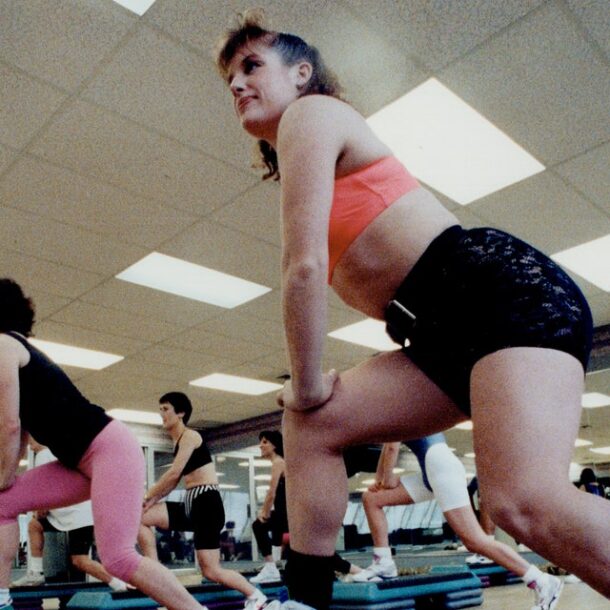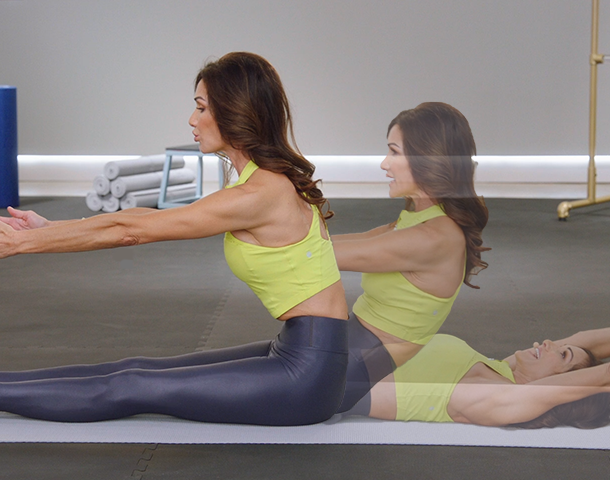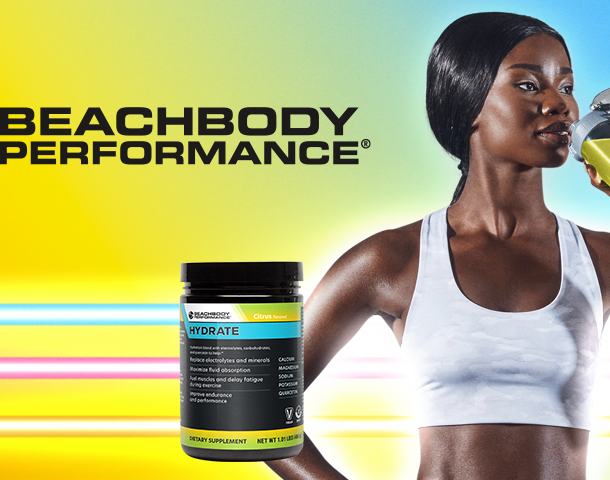
16 Inspiring, Kick-Ass, and Oh-My-God-Did-That-Just-Happen Moments From the Paris Games
The 2024 Paris Games kicked off with a rainy boat ride down the (sorta-safe?) Seine River and an emotional performance by Celine Dion—her first since being diagnosed with stiff person syndrome. And it wrapped up with the women’s marathoners grinding out 26.2 miles along a grueling course, where throngs of fans saved their loudest cheers of the day for Bhutanese runner Kinzang Lhamo, who finished 90 minutes after the event’s winner.
While some of the storylines that we were watching from before the Games lived up to the hype, there were also plenty of surprises along the way (who could’ve predicted the gymnast with a cheese deal, a seven-month-pregnant fencer, or, for that matter, pommel horse guy?).
Here are 16 of the very best moments of the 2024 Summer Games in Paris—the things we know we’ll be thinking about between now and the next Olympics, which kick off in Los Angeles in 2028.
1. The Golden Girls lived up to their name.
Anyone who doubted that Simon Biles could lead her teammates back to prominence—we’re looking at you, MyKayla Skinner—was proven sorely wrong in Paris. The Golden Girls, the team name they adopted because they’re older than any other US women’s Olympic gymnastics team since 1952, proved the title fits in more ways than one: They kicked off the competition with team gold and then went on to win a stack of individual medals too.
PARIS, FRANCE – JULY 30: Biles Simone, Carey Jade, Chiles Jordan, Lee Sunisa and Hezly Rivera of Team United States celebrate after winning the Artistic Gymnastics – Women’s Team Final on day 4 of the Paris 2024 Olympic Games at Bercy Arena on July 30, 2024 in Paris, France. (Photo by Sheng Jiapeng/China News Service/VCG via Getty Images)China News Service/Getty Images
All that would be impressive in any context, but it’s all the more so considering what they’ve coped with in recent years. In addition to the conviction of former physician and USA Gymnastics doctor Larry Nassar for sexual abuse—whom Biles testified against—there was Biles’s high-profile decision to withdraw from the Tokyo Games due to “twisties” and other mental health concerns, along with Suni Lee’s diagnosis with two different kidney diseases.
2. Katie Ledecky proved her dominance at long distances—and became the most decorated US female Olympian ever.
Some Olympic races are won by a fraction of a second. But swimmer Katie Ledecky won the second-ever women’s Olympic 1500-meter freestyle race by more than 10 full seconds. No other athletes were even visible in the frame when she touched the wall. She now holds the 19 fastest times in the history of the event.
Andy Cheung/Getty Images
And while that was her most dominant win of this year’s Games, she also picked up a bronze medal in the 400-meter freestyle, silver in the women’s 4×200-meter freestyle relay, and then gold again in the 800-meter freestyle, making her the only swimmer besides Michael Phelps to win the same event at four straight Games. Oh, and by the way, she’s also now the most decorated female US Olympian of all time, with a grand total of 14 medals.
3. Snoop Dogg and Flavor Flav brought the hype—along with special guests like Martha Stewart and Jill Biden.
We’re not sure what it is about hip-hop stars from the ’80s and ’90s and these Games, but the Snoop Dogg–Flavor Flav duo brought a surprising amount of fun and national unity to Paris.
After his stint carrying the torch, Snoop—an official commentator for NBC—could be seen everywhere from trackside at the Stade de France (side by side with Biles) to fencing with an American flag mask and hobnobbing with Martha Stewart at the Château de Versailles, both wearing full equestrian gear.
03 August 2024, France, Versailles: Olympics, Paris 2024, equestrian sport, dressage, team, final, US rapper Snoop Dogg and Martha Stewart ride a golf cart. Photo: Rolf Vennenbernd/dpa (Photo by Rolf Vennenbernd/picture alliance via Getty Images)picture alliance/Getty Images
Flav, meanwhile, officially sponsored both the women’s water polo team and a discus thrower, Veronica Fraley, who posted on social media about her struggles with paying rent (Serena Williams’s husband, an entrepreneur and noted women’s sports fan Alexis Ohanian, pitched in too). And he was also an upbeat presence around the pool and at other competition venues, hanging out with the likes of first lady Jill Biden.
4. The world’s best athletes proved you can also be good people.
No one gets to the Olympics without really wanting to win. But as we saw countless times throughout the Paris Games, ambition certainly can go hand in hand with camaraderie and respect.
One of the most memorable examples is the love between Biles and Brazilian gymnast Rebeca Andrade. The pair have gone head-to-head for years but always have kind words about each other. Then Andrade edged out Biles in the floor competition, and the resulting bow on the podium is an iconic image that will symbolize the spirit of sportsmanship for years to come.
PARIS, FRANCE – AUGUST 02: Lucia Moris of Team South Sudan lies injured on the ground as Silina Pha Aphay of Team Lao People’s Democratic Republic checks her conditions during the Women’s 100m Preliminary Round on day seven of the Olympic Games Paris 2024 at Stade de France on August 02, 2024 in Paris, France. (Photo by Michael Steele/Getty Images)Michael Steele/Getty Images
And there were countless other such moments. After finishing the 100 meters, Laotian sprinter Silinia Pha Aphay turned around and sprinted back down the track to help South Sudan’s Lucia Moris, who had fallen to the ground with a hamstring injury. During an intense handball match, Angola’s Albertina Kassoma hurt her knee and was carried off the court by one of her opponents, Brazil’s Tamires Araujo Frossard. And when she won silver in badminton, China’s He Bing Jiao brought a Spanish pin on the podium—in honor of Spain’s Carolina Marin, who had to step out of their semifinal match due to injury.
5. Lauren Scruggs became the first Black American woman to earn an individual Olympic fencing medal.
Another reason why that gymnastics podium was so iconic, as Biles later pointed out, was that it was full of Black women. And there was another historic podium moment in fencing—21-year-old Lauren Scruggs won silver in women’s foil (her American teammate, Lee Kiefer, won gold).
Xinhua News Agency/Getty Images
“I think it’s important to have representation, just because once you see yourself you think you can do it, and that goes for race but also just being gay,” Scruggs, who is also a member of the LGBTQ+ community, told SELF after her win. “It’s hard to be gay and present yourself confidently in all spaces. I think it’s important I’m doing that in fencing.”
6. Sydney McLaughlin-Levrone breaks her own world record—again—to win gold in the 400-meter hurdles.
It’s a moment every track athlete dreams of: running a race faster than anyone else ever has—and McLaughlin-Levrone knows it well. She first broke the world record in the 400-meter hurdles in 2021, and, after her performance at the Games (when she ran a mind-blowing 50.37 seconds), she’s now bettered her own mark six different times. Needless to say, she deserved that crown her family put on her head after her finish.
PARIS, FRANCE – AUGUST 08: Gold medalist Sydney McLaughlin-Levrone of Team United States celebrates winning with the new World Record after competing in the Women’s 400m Hurdles Final on day thirteen of the Olympic Games Paris 2024 at Stade de France on August 08, 2024 in Paris, France. (Photo by Andy Cheung/Getty Images)Andy Cheung/Getty Images
What’s more, McLaughlin-Levrone wasn’t quite finished in the Stade de France. Two days later, she ran the second leg of the women’s 4×400 relay, covering a lap of the track in 47.71 seconds to leave the competition behind and earn herself and Team USA yet another gold medal.
7. And many of Team USA’s other sprinters also shone bright.
Harvard grad, master’s in public health, volunteer at a clinic for folks without insurance—Gabby Thomas already had an impressive resume, but she can now add Olympic gold medalist to her list of titles. On August 6, Thomas won the 200 meters in a time of 21.83 seconds. Behind her, Team USA’s Brittany Brown took bronze in 22.20 seconds—she has an equally compelling backstory, including competing with endometriosis, working as a caregiver for people with dementia, and coming back from multiple injuries.
Paris also marked the long-overdue Olympic debut for Sha’Carri Richardson, the two-time US Olympic Track and Field Trials champion in the 100 meters who was barred from competing in Tokyo due to a positive test for THC. She’s finally heading back home with some hardware after winning a silver medal in the women’s 100 meters in 10.87 seconds. And she shared the podium with her training partner, Melissa Jefferson, who won bronze in 10.92 seconds, several years after donating stem cells that saved her father’s life.
Those two—along with another of their training partners, Twanisha “TeeTee” Terry, and Thomas—went on to win gold in the women’s 4×100 relay in a time of 41.78 seconds on Friday, thanks in part to a blistering last lap by Richardson that took them past Team Great Britain. And Thomas was also part of the 4×400 relay team that won gold, bringing her total medal haul from these Games to three.
PARIS, FRANCE – AUGUST 09: Sha’carri Richardson, Twanisha Terry, Gabrielle Thomas, Melissa Jefferson of Team United States celebrates winning the gold medal after competing in the Women’s 4x100m Relay Final on day fourteen of the Olympic Games Paris 2024 at Stade de France on August 09, 2024 in Paris, France. (Photo by Christian Petersen/Getty Images)Christian Petersen/Getty Images
8. Social media gave us a closer look behind the Olympic scenes than ever before.
Those of us who’ve wondered what life (complete with those cardboard beds) is really like in and around the Olympic Village got a real-time peek unlike ever before thanks to all the athletes posting on platforms like TikTok and Instagram.
Some—we’re looking at you, long jump gold medalist Tara Davis-Woodhall and rugby bronze medalist Ilona Maher—came into the Games as social media superstars and continued sharing their experiences (and growing their audiences) as they went. We’re especially big fans of Maher’s posts about her “overweight” BMI, the wide variety among Olympic bodies, and, of course, her running bit about the Olympic Villa.
But others soared to viral fame during the Games, like Norwegian distance swimmer Henrik Christiansen, a.k.a. the Muffin Man, due to his obsession with the chocolate muffins in the dining hall and New Zealand rugby player Michaela Blyde, who freaked out upon meeting Jamaican sprinter Shelly-Ann Fraser-Pryce. (Olympians—they stan their sports idols, just like us!)
9. Cyclist Kristen Faulkner proves it’s never too late to start a sport.
While some winners, like McLaughlin-Levrone, were expected, others came as a shock. Cyclist Kristen Faulkner is firmly in the second category. For one thing, she only started biking seven years ago. And then there’s the fact that she wasn’t even supposed to compete in the event in the first place.
Kristen Faulkner of the United States celebrates after the women’s road race of cycling road at the Paris 2024 Olympic Games in Paris, France, Aug. 4, 2024. (Photo by Hu Huhu/Xinhua via Getty Images)Xinhua News Agency/Getty Images
On July 9, USA Cycling announced that Faulkner would take Taylor Knibb’s place on the road, as Knibb chose to focus on the time trial and triathlon events at the Games. Even with the late call-up, Faulkner dominated, winning gold by nearly a minute. And two days later, she won gold again in team pursuit.
10. Sifan Hassan pulls off an incredible triple feat.
The 31-year-old Dutch athlete raced at three distances over the course of the Paris Games, the 5,000 meters, the 10,000 meters, and the marathon. Add it all up, and that’s 38.5 miles of fast running.
She took bronze in both the 5,000 meters and 10,000 meters, and on the final day of competition she capped it off by winning the 26.2-marathon…in a sprint finish. That, by the way, was on a course widely thought to be exceedingly difficult thanks to all the hills and heat, yet she ran a time of 2:22:55, a new Olympic record (that’s a 5:27 per mile pace, BTW).
11. “Triple Espresso” powered women’s soccer back to gold.
Under the helm of new head coach Emma Hayes, the US National Women’s Team is back to its winning ways. And there’s a new trio of young superstar forwards—Trinity Rodman, 22, Sophia Smith, 24, and Mallory Swanson, 26—leading the way, scoring 9 of the 10 goals that got Team USA to the final on Saturday, where they defeated Brazil 1-0 thanks to a goal scored by Swanson.
LYON, FRANCE – AUGUST 6: Sophia Smith of the United States celebrates her goal with teammates Mallory Swanson, Sam Coffey, Lynn Williams and Trinity Rodman during the Women’s semifinal match between United States of America and Germany during the Olympic Games Paris 2024 at Stade de Lyon on August 6, 2024 in Lyon, France. (Photo by Daniela Porcelli/ISI Photos/Getty Images)Daniela Porcelli/ISI Photos/Getty Images
Announcers had given them nicknames—like Trident and Holy Trinity—but on the Today show on August 8, they shared their preferred term: Triple Espresso. “We’re going to put that out into the air and let people run with that, because we like that,” Rodman said. We’d order one of those, for sure!
12. And American basketball reigned supreme.
It was a bit of a nail-biter, but after a buzzer shot by France’s Gabby Williams was ruled a two-pointer rather than a three, Team USA won an unprecedented eighth-straight gold medal in hoops. (And oh yeah, the guys also beat France to win gold, making five straight Olympic championships on the men’s side.)
13. Weightlifter Olivia Reeves did some heavy lifting to end a US medal drought.
Olivia Reeves, a 21-year-old sociology major at the University of Tennessee at Chattanooga, focused on history instead on Friday when she set an Olympic record of 117 kilograms—that’s about 258 pounds—in the snatch. She followed that with a clean and jerk of 145 kilograms (320 pounds) to hoist a total of 262 kilograms and win Team USA’s first gold in weightlifting since 2000.
PARIS, FRANCE – AUGUST 09: Olivia Reeves of Team United States performs a clean and jerk during the Weightlifting Women’s 71kg on day fourteen of the Olympic Games Paris 2024 at South Paris Arena on August 09, 2024 in Paris, France. (Photo by David Ramos/Getty Images)David Ramos/Getty Images
14. Across sports, women competed at “older” ages.
Yes, Reeves is still in college, and teenagers stood atop skateboarding podiums. But overall, there was a refreshing diversity of age range in this year’s Games, with many extending their athletic careers (or even returning to elite sports after a break).
On August 2, equestrian show jumper Laura Kraut, 58, won a team silver to become the oldest American medalist since 1952. Two table tennis competitors—58-year-old Zhiying Zeng, who was making her Olympic debut, and 61-year-old Ni Xia Lian—didn’t let age stand in their way. Neither did 55-year-old Nino Salukvadze, a Georgian pistol shooter who became the first athlete to compete in 10 straight Olympics in any sport.
TOPSHOT – Chile’s Zhiying Zeng plays a return to Lebanon’s Mariana Sahakian during their women’s table tennis singles preliminary round at the Paris 2024 Olympic Games at the South Paris Arena in Paris on July 27, 2024. (Photo by JUNG Yeon-je / AFP) (Photo by JUNG YEON-JE/AFP via Getty Images)JUNG YEON-JE/Getty Images
Women in their 40s were represented by Team USA basketball star Diana Taurasi, 42, and Canadian marathoner Malindi Elmore, 44. Volleyballer Jordan Larson came out of retirement to return to her fourth Games at age 37. And even Biles, who’s 27, is older than the teen gymnasts of the past.
15. And they were open about the health conditions they managed along the way.
Top athletes have always sustained injuries and lived with illnesses, but all too often they’ve felt they had to cope in silence behind the scenes. Now, they’re talking far more about every aspect of their health—mental and physical—raising awareness and educating others along the way.
Ledecky, for example, opened up about her postural orthostatic tachycardia syndrome, or POTS, in her new memoir, Just Add Water: My Swimming Life. The condition causes a drop in blood pressure and blood pooling in her legs when she stands; she controls it with proper hydration, extra salt, and (believe it or not) swimming.
Her swimming teammate Simone Manuel spoke about coming back from overtraining syndrome. Sprinter Brown discussed her endometriosis and Noah Lyles shared more about his asthma. Canadian rugby captain Olivia Apps wasn’t shy about her alopecia, an autoimmune disease that caused her to lose her hair at age seven.
And, of course, there’s Lee’s kidney disease and Biles’s mental health—a topic she deserves major props for bringing to the forefront (she even mentioned having a session with her therapist in the morning before winning the all-around gold).
16. All in all, women just kept on crushing it—and we’re so glad we tuned in.
For the first time ever at the Games, there were as many athletes competing in women’s sports as in men’s events—and, by all appearances, having fun doing it. But that didn’t get in the way of kicking ass: American women won the majority of medals for Team USA, 67 of the 126 total. And thanks to streaming, tens of millions of people tuned in. That buzz we’ve been feeling around women’s sports? It’s real, and it’s spectacular.
SELF is your one-click source for all things Summer Olympics. Read our latest coverage of the Paris Games here.
Related:
- What Artistic Swimmers Wish You Knew About This Absolutely Grueling Olympic Sport
- How Hip-Hop Helps Olympic Breaker Logan Edra Get in the Zone
- 9 Priceless Photos of Olympic Athletes Winning Gold
Get more of SELF’s great sports coverage delivered right to your inbox—for free.
Related Articles
2023 Healmyselfnow @ All Rights Reserved


